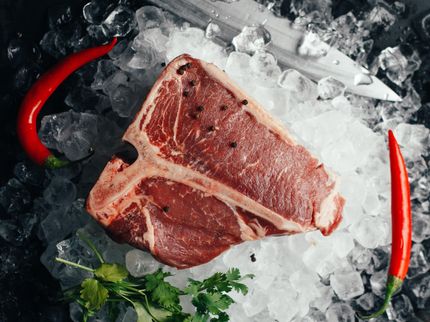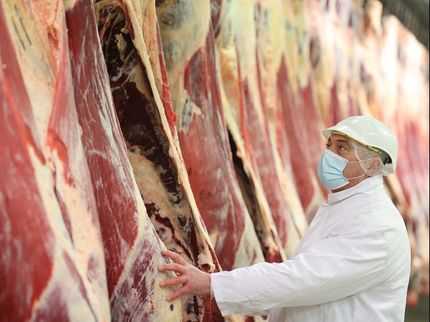Skip the barbecue? Lack of CO2 hits EU beer, meat production
Europeans may have to cut back on their summer barbecues.
A shortage of carbon dioxide that has already halted some beer production is also hitting food processing companies. Scotland's biggest pork producer said Tuesday it would run out of the gas in a week.
Slaughterhouses use industrially made carbon dioxide to stun animals before slaughter, and also use it in packaging to increase shelf-life in stores.
It is obtained as a byproduct in the production of fertilizers. That means that companies that use the gas, like breweries and slaughterhouses, have no say in how much is produced.
Carbon dioxide production is usually lower in the summer because of the hot weather, but a string of problems across the sector in Europe have caused fertilizer makers to shut down more plants than usual. Though the shortage is Europe-wide, Britain's gas manufacturers have suffered additional mechanical problems that have further reduced supply.
Overall production of carbon dioxide was already under pressure as the market for the fertilizer ammonium nitrate has weakened, said Nick Allen, head of the British Meat Processors Association.
"Things are getting tight," he said.
Allen said the shortage of carbon dioxide "might well affect the price of meat." Many major suppliers "will have to make very serious decisions about their levels of production."
In Britain, the government prioritizes carbon dioxide for use in hospitals and fire-extinguishers, so companies that use the gas for manufacturing - of goods as diverse as fizzy drinks and meat - are being supplied with less.
Small brewers and farmers are particularly vulnerable. Alex Gordon, the manager of Maidland's Farm in Scotland, worries that because slaughterhouses set prices, the amount of money given to farmers "would hit the ground."
"Farmers could make less money," he said.
Zoe Davies, CEO of Britain's National Pig Association, says the shortages could last weeks for some companies but is hopeful that the pig industry will not suffer lasting damage. Davies said no work is being canceled so far, with major farms moving their pigs to other slaughterhouses.
"I don't think the customer would see any difference," said Davies. She said meat producers expect carbon dioxide supplies to return to normal levels within the next few weeks.
In the drinks industry, the situation has been exacerbated by a "catalogue of unfortunate things which have ended up into something major," said Edward Binsted, the president of the British Bottlers' Institute.
Though drinks manufacturers increased orders to meet the rise of demand from the World Cup, they did not anticipate northern Europe's heat wave, and have struggled to satisfy those wanting a cold drink in the sun.
Holden's Bottling, a small bottling company in central England, normally produces about 80,000 bottles a day. This week, they've produced zero.
"The company is closed. We can't turn over another penny until we've received gas from the supplier," said Mark Hammond, the director. He said his company has been trying to get gas for ten days but has received no indication of when supply will resume.
"It's as if our whole revenue stream turned off." (dpa)
Most read news
Other news from the department business & finance

Get the food & beverage industry in your inbox
By submitting this form you agree that LUMITOS AG will send you the newsletter(s) selected above by email. Your data will not be passed on to third parties. Your data will be stored and processed in accordance with our data protection regulations. LUMITOS may contact you by email for the purpose of advertising or market and opinion surveys. You can revoke your consent at any time without giving reasons to LUMITOS AG, Ernst-Augustin-Str. 2, 12489 Berlin, Germany or by e-mail at revoke@lumitos.com with effect for the future. In addition, each email contains a link to unsubscribe from the corresponding newsletter.




























































